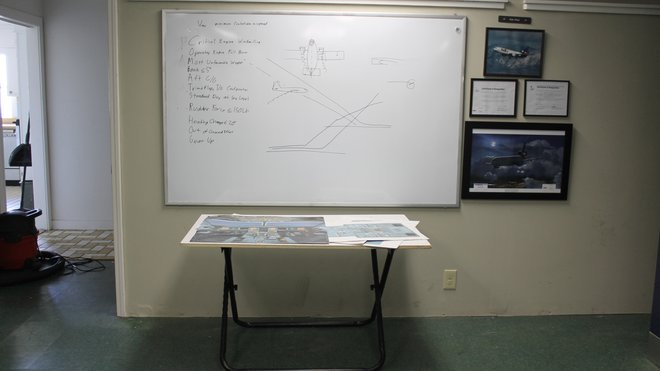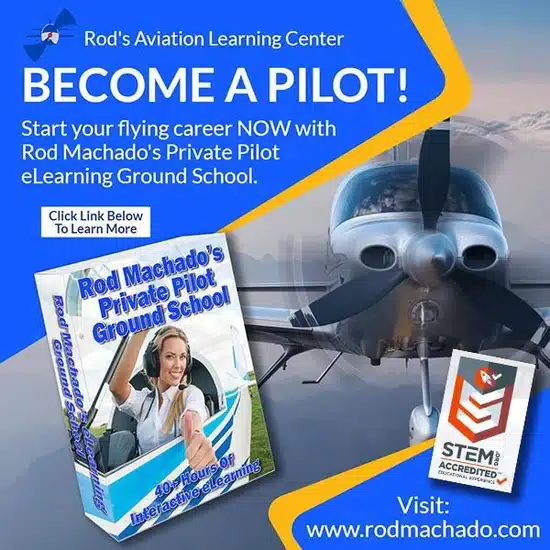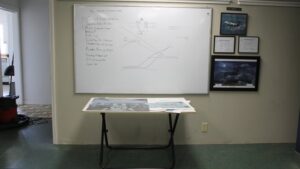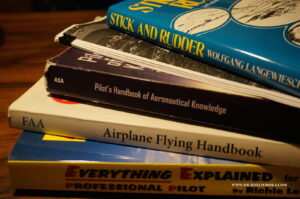How to Prepare for Ground School?

Ground school forms the foundational knowledge required for pilot training, combining theoretical study with practical understanding. This crucial phase prepares aspiring pilots for the complexities of aviation, covering various topics from navigation to flight regulations.
This article aims to guide you through effective strategies and resources to maximize your preparation for ground school, ensuring a robust and comprehensive understanding of essential aviation principles.
Understanding Ground School Basics
Ground school is an integral component of pilot training, focusing on the theoretical aspects of flying. It lays the groundwork for what you will eventually practice in the air, covering a broad spectrum of subjects contributing to a pilot’s overall competence and safety, including key differences between sports pilot and private pilot licenses.
The purpose of ground school is vital—it’s not just about passing tests but about building a solid foundation of knowledge that ensures safe and efficient flying. This includes understanding the distinct requirements and privileges of different pilot licenses, such as the sports pilot versus the private pilot.
Online ground school can be an excellent alternative for those who may not have easy access to traditional flight schools or prefer a more flexible learning schedule. These online platforms offer comprehensive training in the principles of flight, navigation, and aeronautical decision-making, preparing you for both private and commercial pilot licenses, along with insights into the sports pilot pathway.
Core Subjects Covered in Ground School
In ground school, you will delve into several core subjects crucial for every pilot. Navigation teaches you how to traverse from one point to another safely.
Meteorology covers weather patterns and their impact on flight. Flight regulations are essential for understanding the legal aspects of flying. Aircraft systems offer insights into the mechanics and operations of airplanes.
Communication skills are vital for effective interaction with air traffic control. A comprehensive understanding of these subjects is crucial for passing exams and for your safety and efficiency as a pilot.
Preparing Mentally and Physically
Mental Preparation
Mental preparation is as important as academic study in ground school. Developing a focused mindset involves setting realistic study goals and establishing a routine that promotes effective learning.
As you approach your studies, it’s essential to do so with curiosity and dedication, recognizing that this knowledge forms the foundation of your flying career.
To assist with the vast amount of information, you might consider exploring different learning environments, such as online ground school versus in-person training, to find what best suits your learning style and needs.
Implementing stress management techniques is also crucial, as the volume of information can sometimes be overwhelming. Cultivating a positive, disciplined mindset is key to navigating the challenges of ground school with resilience and determination.
Physical Preparation
Physical readiness plays a significant role in your journey to becoming a pilot. Good health and fitness support the mental demands of studying and the physical requirements of flying.
Regular physical activity, a balanced diet, and adequate rest are crucial for maintaining high energy levels and focus. Pilots must be alert and responsive; a healthy lifestyle supports these requirements.
Consider incorporating cardiovascular exercises, strength training, and yoga into your routine to enhance your physical and mental well-being, preparing you for the rigors of pilot training.
Study Strategies and Resources
To excel in ground school, adopt active study techniques like interactive note-taking, group discussions, and teaching concepts to others. Understanding is more beneficial than rote memorization.
Techniques like mind mapping, flashcards, and mnemonic devices can aid memory retention. Time management is also crucial—allocate specific time slots for each subject and stick to a study schedule. Balancing study time between various subjects ensures a well-rounded understanding of all the necessary topics.
Leverage a variety of resources to aid your study. Textbooks and online courses are fundamental, but they also explore interactive tutorials, aviation podcasts, and YouTube channels dedicated to flight training.
Staying updated with current aviation regulations and news is vital as this industry evolves. Join online forums or local aviation clubs to connect with fellow students and experienced pilots, as they can offer invaluable insights and practical advice.
Networking and Seeking Guidance
Building a network within the aviation community is invaluable. Experienced pilots and instructors can provide mentorship, advice, and real-world insights that textbooks cannot.
Participating in aviation clubs and online forums is a great way to connect with industry professionals. These connections can offer guidance, support, and motivation, helping you navigate the complexities of pilot training and the aviation industry.
Consider enrolling in introductory or preparatory courses before beginning formal ground school. These courses can provide a foundational understanding of aviation principles and smooth the transition to more advanced topics.
They also offer an opportunity to gauge your interest and aptitude in the field. Many flight schools offer these preparatory courses, which can be a valuable investment in your aviation education.
Practical Application and Simulation
Flight simulators are excellent for applying theoretical knowledge in a controlled, risk-free environment. They offer a practical understanding of flight dynamics, instrumentation, and decision-making processes.
Many flight schools provide access to simulators, or you can use home-based software solutions. Regular simulator practice can significantly enhance your learning experience, offering a bridge between theoretical study and actual flight training.
Seek opportunities for hands-on learning, such as visiting airports, hangars, or aviation museums. Observing aircraft, engaging with flight operations, and talking to professionals in the field can provide practical insights and a deeper appreciation of the aviation industry.
These experiences can complement your formal education, offering a real-world perspective that enriches your understanding and passion for flying.
Wrapping Up
Preparing for ground school is a multi-faceted process that requires dedication, discipline, and a proactive approach to learning.
By understanding the basics, preparing mentally and physically, employing effective study strategies, and seeking guidance and practical experiences, you can lay a solid foundation for your pilot training.
Remember, the journey to becoming a pilot is challenging but incredibly rewarding. With the right preparation and mindset, you can navigate this journey successfully and achieve your aviation aspirations.







